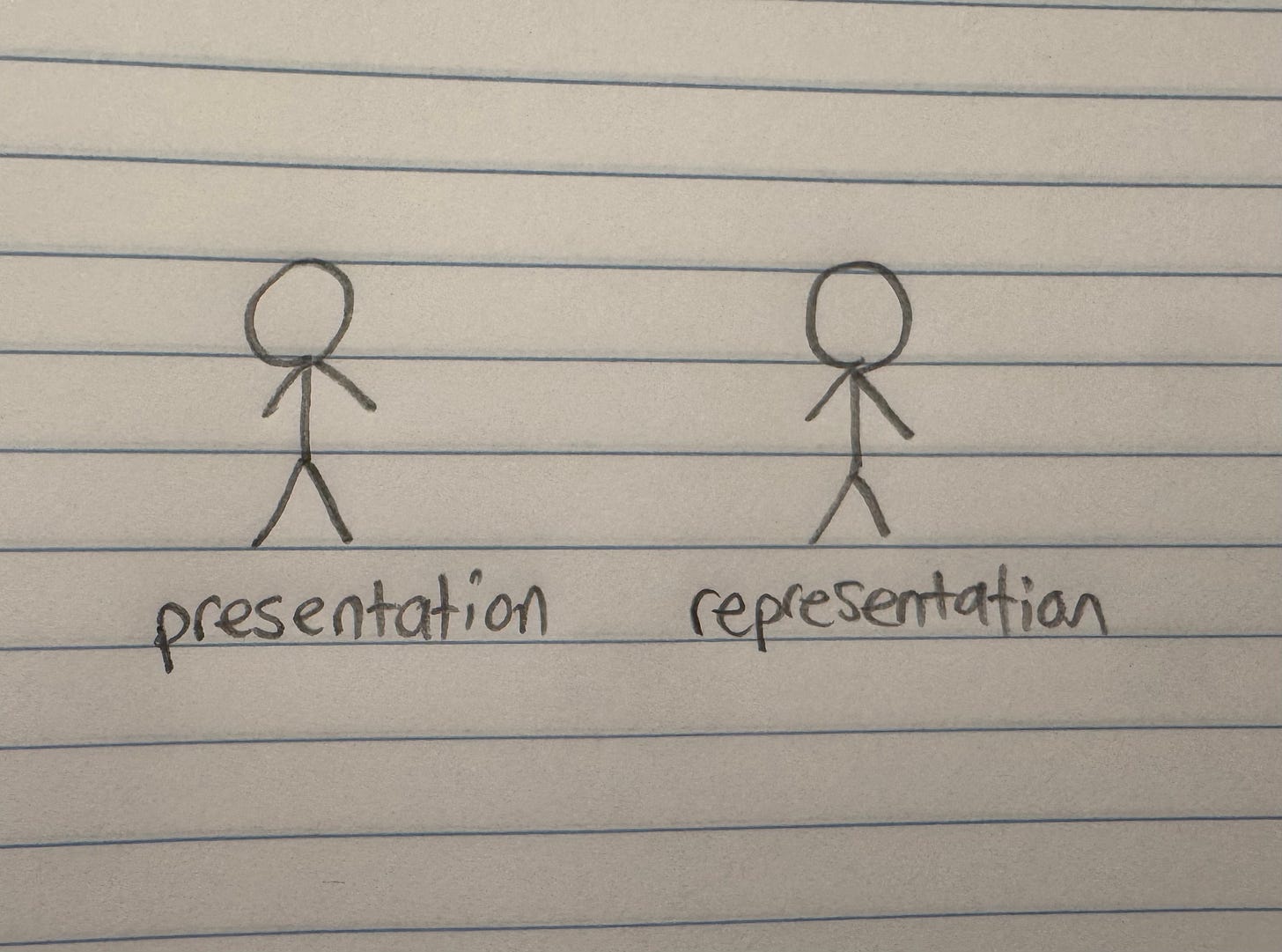why you should be smelling more things
One of the silly little quirks of being human is that we pretend that some experiences are more real than others.
Looking at a sunset, for example, feels more real than looking at a photograph of a sunset—even if you’re ultimately using the same visual faculties to process sensory input. In the same way, listening to a song on Spotify feels less real than listening to that song on a record player, which feels less real than listening to a live rendition.
However you choose to listen to the song, of course, you’re still there, but you nevertheless feel more there when the experience has immediacy, presence—what the philosopher Walter Benjamin calls “aura.”
It’s the difference between “presentation” and “representation.” As soon as something with presence occurs again (that is, represented), it loses the feeling of authenticity that came with it being isolated to a specific time and place.
This means that we mentally distance ourselves from an experience whenever we recognize it as a representation. A theatrical performance is understood as “not real” because it’s a representation of reality, even though the actors are indeed real humans going through real human motions. Curiously, though, the live aspect of theater still makes a play feel more “real” than a movie, which you view through an additional lens of detachment.
Social media contributes yet another layer of abstraction. Even the act of watching a movie can ritualistically cordon off a fragment of time, but the algorithm takes up space without time. It bombards us with an unprecedented stream of re-presented sights and sounds, forcing us to dissociate as we scroll. As a result, we become less “present” ourselves, and less happy overall.
I see two possible solutions to this problem:
Experience more “real”-feeling things
Change how you experience “fake”-feeling things.
Most of my recent work has focused on this second point. There are ways to feel better about your social media use. You have to start with being aware of exactly what’s happening online—this awareness combats the detachment. Then you can creatively build your own rituals and definitions of authenticity such that you become more present over time.
But back to the first point: how do we experience more “real” things? Part of it may involve spending less time on your phone; part of it involves seeking out experiences with “aura”—the sunsets and live music and weird coincidences.
Then there’s smell.
All of the “representations” I’ve been writing about are sights and sounds, because our technology has evolved around a primarily audiovisual culture. It’s logistically much more difficult to reproduce a smell, and smells tend to linger, so they can’t as readily be tied into the fast-paced social media ecosystem.
Nor can you look up a smell. With a few quick taps of your finger, you can now summon any image or song, but you have to be there to smell something. As such, the smell has aura; you experience it as “realer.” You might view a photograph as a flatter version of visual reality, but a candle still creates an actual embodied sensation tied to a moment in spacetime.
More importantly, smells are incompatible with the modern framework of attention as the currency of our perception. The Columbia professor Jonathan Crary argues that today’s representational culture results from a nineteenth-century shift away from defining “perception” as “presence” and toward “attention.” Rather than recognizing our experience as immersive, our discourse and technologies evolved to emphasize the filtering out of stimuli in favor of some target.
Our new understanding made it easier to re-create our experiences for quantifiable stimuli like sight and sound. Once we had metrics for “perception,” we could commodify them, and create a cultural logic around “switching our attention rapidly from one thing to another.”
This is where smell truly becomes an issue for the forces of consumerism. You can certainly experience strong whiffs of an odor, but the sensation trends toward being ambient, not targeted. It forms a durational part of your presence, which is why flowers and incense and sewer sludge are so good at bringing you into your own body. They definitionally feel real because they defy the detachment of “re-presentation.”
If anything, I see smelling as a radical act. The more we refocus on our less commodifiable sensations, the more we dethrone the institutionalized primacy of audiovisual spectacle.
I’ve been smelling a lot of things recently. It’s been thoroughly excellent, and I invite you to join me.
If you liked this post, please consider pre-ordering my book Algospeak, where I examine how algorithms are affecting our speech!! Pre-orders are super important for new authors because they help determine whether I can get a good second book deal - and I am cooking on something :)
Also, you can get this poster for free!! Only if you pre-order in the US - link here.




an only mildly related fact that (if you don’t know already) i thought you might enjoy: Garhwali, which is my mother’s native tongue, has many words for oddly specific smells, ranging from the smell of a dog, to the moist smell that permeates from fabric post rainfall :))
I'd say this thought misses a very important part of the phenomenon, it's not just smell that is lost, every other sense is too; when you're experiencing a sunset, you do so with your whole being, with this much abstraction you're losing the warmth of the sun, the breeze of the wind, the chirping of some passing bird, and the feeling of utter scale of the panorama that is engulfing you.
Not only you should be smelling more things, you should be FEELING more.